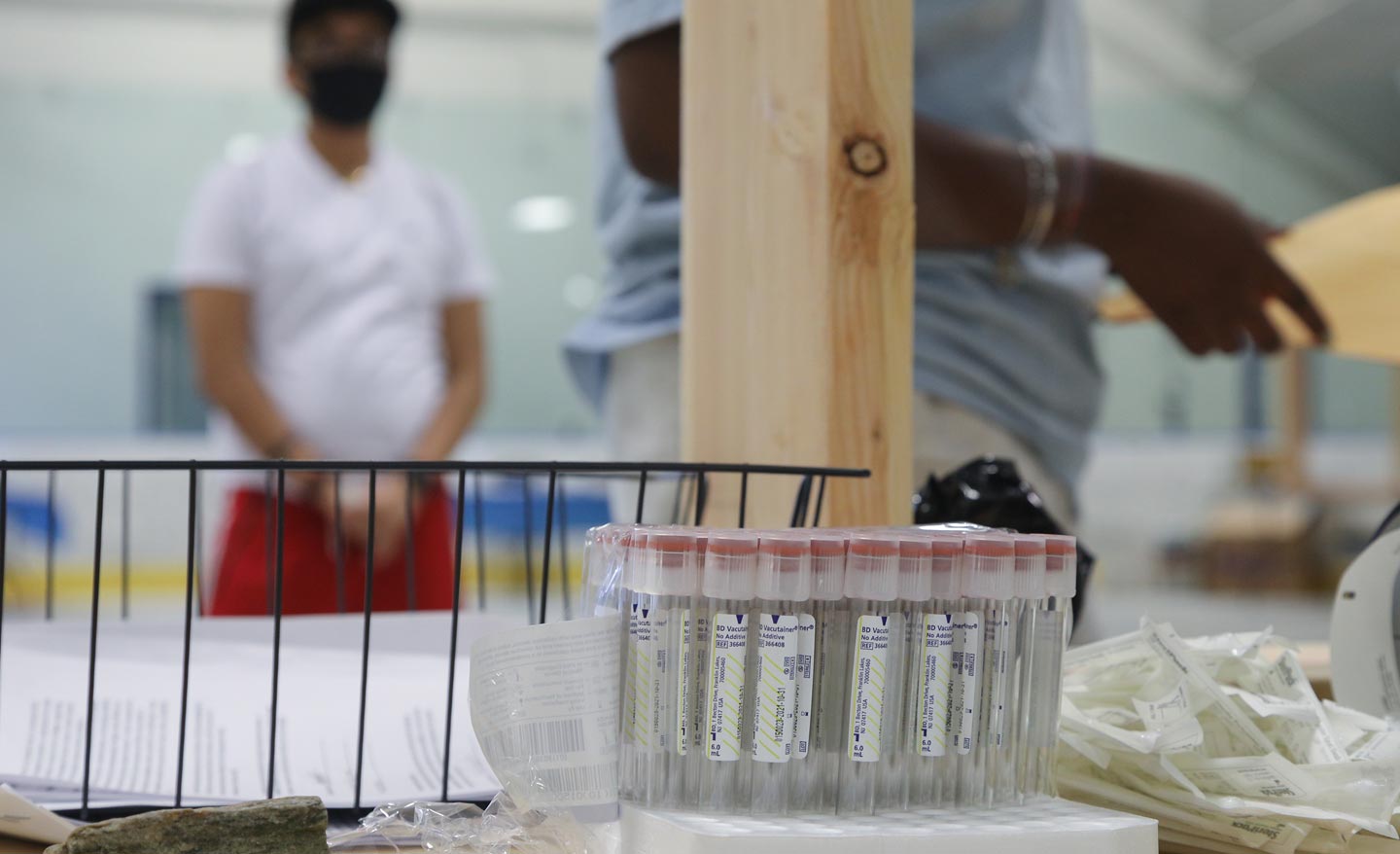Lab Tests
Two Conn alums help to safeguard campus health amidst a global pandemic.
Having completed her undergraduate degree in the middle of a global pandemic, aspiring physician Isis Torres Nuñez ’20 knew she had an amazing opportunity to put her skills to good use.
“I was eager to work in a lab related to COVID-19,” said Torres Nuñez, who majored in biochemistry, cellular and molecular biology and was a scholar in the Toor Cummings Center for International Studies and the Liberal Arts (CISLA) at Conn.
In July, she accepted a position as a process development associate at the Broad Institute of MIT and Harvard—the very same lab that began processing thousands of tests a week for Connecticut College in August.
“I wanted to be involved in any way possible, and this seemed like the most logical, personally interesting and satisfying way,” she said.
As it turns out, Torres Nuñez isn’t the only Camel in the building. Her classmate Conor O’Neil ’20 is also a process development associate at the Broad Institute.
O’Neil, a biochemistry, cellular and molecular biology major, Italian minor, and CISLA scholar, said he was looking for a way to help prevent the spread of COVID-19 and was attracted by the Broad Institute’s high-throughput COVID-19 testing facility, which has processed more than 1.2 million COVID-19 tests since March and now processes approximately one in every 20 tests nationwide.
The program to support higher education was conceived in May, when the Association of Independent Colleges and Universities in Massachusetts reached out to the Broad Institute to ask it to support its member organizations’ desire for regular testing in the Fall 2020 semester.
“One of the reasons I was interested in applying is that Broad works with hospitals, nursing homes, homeless shelters, high-impact communities and educational institutions,” O’Neil said. “It makes me happy to be helping reduce the risk of transmission and keeping the campus safe.”
The Broad Institute has developed a specific Polymerase Chain Reaction (PCR) testing program for colleges and universities that provides results within 24 hours of receiving samples in their laboratory. Conn set up a testing center in the Athletic Center, and all students, faculty and staff who are on campus more than two days a week are tested twice weekly. Those on campus for two days or less are tested once a week. Those samples then make their way to Cambridge, Massachusetts, for processing.
Torres Nuñez typically works in “accessioning,” where she and her colleagues prepare the samples for laboratory testing, although she has also been training in “extractions,” in which she uses automated processing machines to extract RNA from the patient samples transferred in accessioning. Those extractions then go off to a quantitative Polymerase Chain Reaction (qPCR) team, which includes O’Neil, that ultimately helps determine whether a patient has tested negative or positive.
“Every step is critical and dependent on the others, making it crucial for us to work closely as a team,” Torres Nuñez said.
Both Torres Nuñez and O’Neil approve of Conn’s robust testing plan.
“I think testing twice a week is a great and responsible way to keep the campus safe. The swab does not take long and these tests work very well to detect if the virus is present,” O’Neil said.
Torres Nuñez added that while getting tested so often may be tedious, it’s very important to help identify cases and mitigate the spread, especially when students are living together in close quarters. And knowing that her work is helping to keep vulnerable populations safe keeps her motivated.
“Though some days are exhausting and truly physically and mentally demanding, I go home every day happy knowing that it’s worth it,” she said. “I look forward to going to work every day, recognizing that my efforts are contributing to our battle against this pandemic.”
